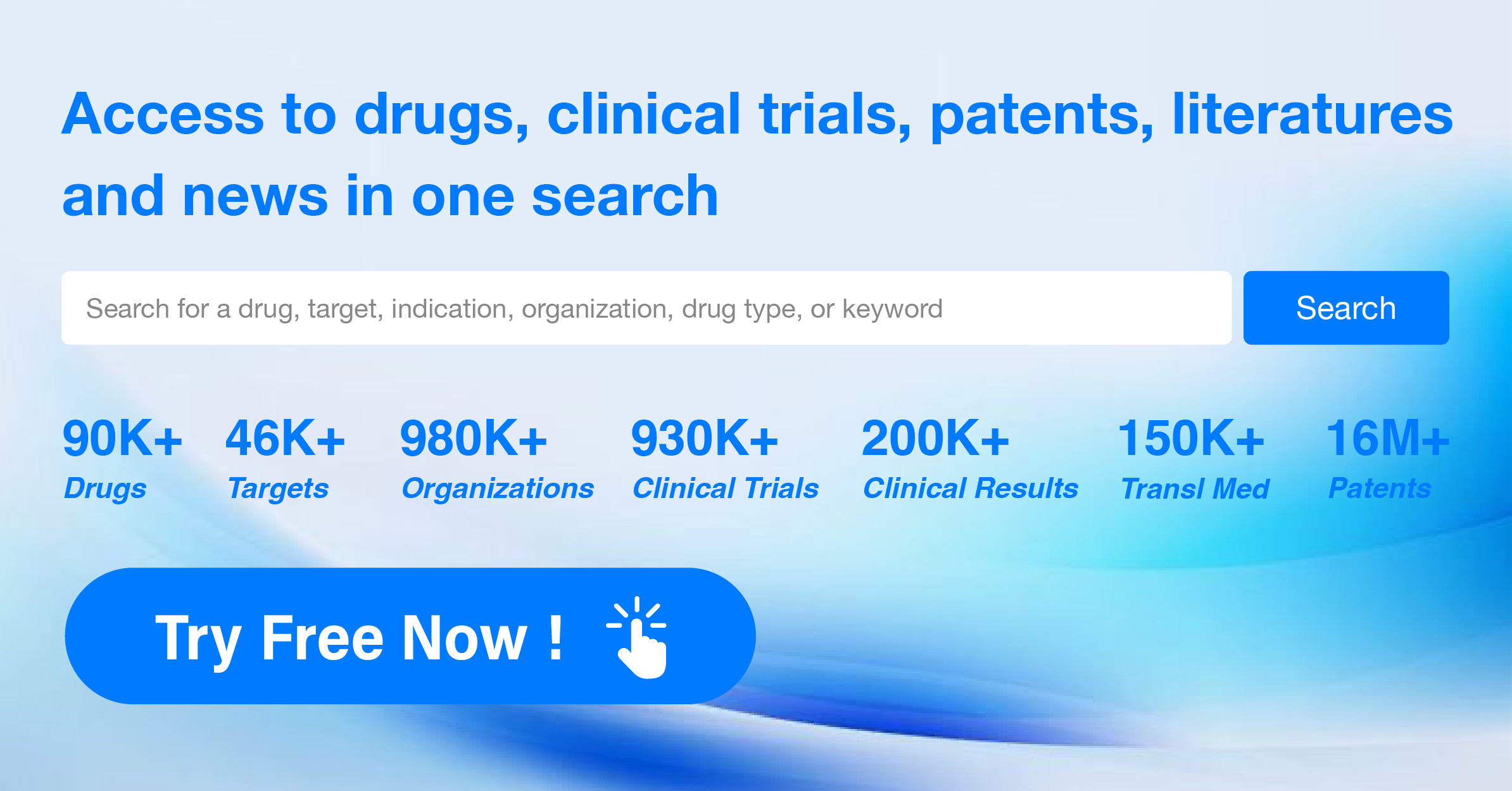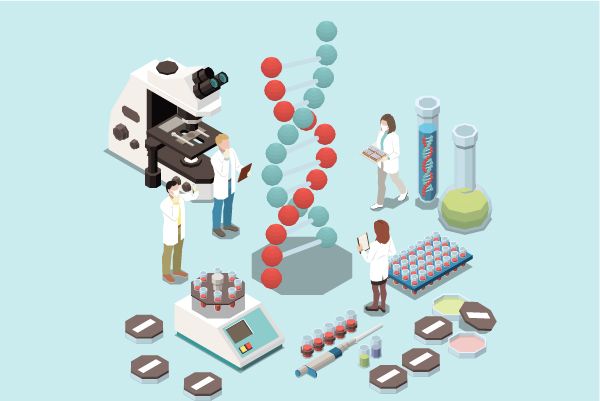Pharma Frontiers: Daily Digest of Global Pharmaceutical News - Jun 20
1.AbbVie's IL-23 Inhibitor Receives Another FDA Approval for Treating Ulcerative Colitis
On June 19, AbbVie announced that the U.S. FDA has approved the extension of the indication for Skyrizi (risankizumab) to treat adult patients with moderate to severe active ulcerative colitis. According to the press release, this approval makes it the first IL-23 specific inhibitor to be approved for treating both moderately to severely active ulcerative colitis and Crohn’s disease. Skyrizi has now been approved for the treatment of four immune-mediated inflammatory diseases. Ulcerative colitis is an inflammatory bowel disease (IBD) that causes inflammation in the digestive tract and may damage the mucosal lining of the colon. Patients typically experience a range of unpredictable symptoms that affect their daily lives, such as abdominal pain, bloody stools, and urgent bowel movements. The course of ulcerative colitis varies among patients and may lead to surgery or complications in some cases, including cancer or death. More than one million people in the United States have ulcerative colitis, making it one of the countries most affected by this disease, and the number continues to rise. Risankizumab is a humanized IgG1 monoclonal antibody that selectively antagonizes IL-23 by binding to its p19 subunit. IL-23 is a cytokine involved in inflammation and believed to be associated with various chronic immune conditions. Previously, Skyrizi had received three FDA-approved indications, including Crohn’s disease, moderate to severe plaque psoriasis, and active psoriatic arthritis in adults. Results from earlier Phase 3 clinical trials showed that a significantly higher proportion of patients receiving 180 mg or 360 mg doses of risankizumab achieved clinical remission at week 52: 40% and 38% respectively, compared to 25% in the control group (p<0.01).
2.Intra-Cellular's Small Molecule Therapy Lumateperone to Submit Regulatory Application, One-Week Depression Relief!
On June 19, Intra-Cellular Therapies announced positive top-line results from the Phase 3 clinical trial 502 of its investigational therapy lumateperone, used as an adjunctive treatment for major depressive disorder (MDD). The company plans to submit a supplemental New Drug Application (sNDA) to the United States FDA in the second half of 2024 for the use of lumateperone as an adjunct therapy for treating MDD.
In the 502 study, lumateperone, administered once daily as an adjunctive treatment to antidepressant therapy, met its primary endpoint by showing a statistically significant and clinically meaningful reduction in the Montgomery-Asberg Depression Rating Scale (MADRS) total score compared to placebo at Week 6. In the modified Intent-to-Treat (mITT) population, the lumateperone group showed a mean decrease in MADRS total score of 14.7 points from baseline, compared to 10.2 points for the placebo group (mean difference of -4.5 points; p<0.0001). Notably, numerical improvement on the MADRS total score was observed as early as Week 1 compared to placebo (p=0.0504), achieved statistical significance by Week 2, and was maintained throughout the study.
Lumateperone also met the key secondary endpoint of the study, with a statistically significant and clinically meaningful reduction in the Clinical Global Impression-Severity (CGI-S) score compared to placebo at Week 6 (p<0.0001). Statistically significant differences in CGI-S scores compared to placebo were observed starting from Week 3 and were maintained throughout the duration of the study.
Lumateperone is an oral, once-daily atypical antipsychotic. It has already received FDA approval for the treatment of schizophrenia and as an adjunctive therapy for depressive episodes associated with bipolar I or II disorder in adults.
3.Tianchen Biomedical Initiates Phase 3 Clinical Trial for Innovative Allergic Rhinitis Drug LP-003 Injection
Recently, the Chinese Clinical Trial Registry and Information Disclosure Platform announced that Tianchen Biomedical has initiated a Phase 3 clinical trial to evaluate the efficacy of LP-003 injection in treating patients with seasonal allergic rhinitis. This study aims to enroll 540 participants across 29 research centers in China. LP-003 injection is a new-generation anti-IgE antibody, which has previously shown positive results in a Phase 2 clinical study for treating seasonal allergic rhinitis. Furthermore, this product features low dosage and prolonged efficacy, with subcutaneous administration once every four weeks (Q4W).
Allergic rhinitis (AR) is a non-infectious chronic inflammatory disease of the nasal mucosa, primarily mediated by immunoglobulin E (IgE) following exposure to allergens in atopic individuals. Seasonal allergic rhinitis (SAR) is a subtype of AR, with common allergens including pollen. Currently, nasal corticosteroids and antihistamines are commonly used to control allergic rhinitis symptoms. However, over 60% of patients still experience uncontrolled symptoms despite combined therapy, and long-term use may lead to adverse effects.
Anti-IgE antibodies can reduce allergic symptoms by decreasing free IgE levels, downregulating high-affinity IgE receptors, and limiting the degranulation of mast cells, thereby reducing the release of various mediators in the allergic inflammatory cascade. Presently, anti-IgE monoclonal antibodies are recommended by guidelines for patients with moderate to severe seasonal or perennial allergic rhinitis whose symptoms are not adequately controlled by nasal sprays and/or oral corticosteroids and antihistamines.
Public information indicates that Tianchen Biomedical, established in 2020, is a biotechnology company dedicated to the development of innovative large-molecule drugs targeting the fields of allergies and complement system.
4.Mustang Bio Announces Latest Positive Clinical Results for CAR-T Cell Therapy MB-106
Recently, Mustang Bio announced the latest data from its ongoing Phase 1/2 clinical trial of the investigational CAR-T cell therapy MB-106. The analysis indicated that the overall response rate (ORR) for patients with Waldenstrom macroglobulinemia (WM) receiving the therapy was as high as 90%, with one patient achieving a durable complete response for 31 months. All these patients had undergone extensive prior treatment before receiving MB-106. According to the press release, no CAR-T therapy has yet been approved by the FDA for the treatment of WM patients. All ten patients in the trial had previously been treated with Bruton tyrosine kinase inhibitors (BTKi) and had shown disease progression during BTKi treatment. The patients had received a median of 9 prior lines of therapy, with only one patient requiring additional anti-WM treatment after receiving MB-106. Overall, 90% (9/10) of the patients treated with MB-106 responded to the treatment, including 3 complete responses, 2 very good partial responses, and 4 partial responses. Additionally, 1 patient achieved stable disease. One patient with a complete response has maintained this status for 31 months, with their immunoglobulin M (IgM) levels rapidly dropping to the normal range after MB-106 treatment and remaining normal thereafter.
In terms of safety, 9 out of 10 patients experienced cytokine release syndrome (CRS): 5 patients had grade 1 CRS and 4 patients had grade 2 CRS. One patient experienced grade 1 immune effector cell-associated neurotoxicity syndrome (ICANS). Despite dose escalation, no grade 3 or 4 CRS or grade 2, 3, or 4 ICANS was observed. MB-106 is an autologous CAR-T cell therapy targeting CD20 and can be administered on an outpatient basis. It is being co-developed by Mustang Bio and the Fred Hutchinson Cancer Center for the treatment of relapsed or refractory B-cell non-Hodgkin lymphoma (B-NHL) and chronic lymphocytic leukemia (CLL).
5.CS060304 Tablets by Case Kaidi Approved for Clinical Trials for NASH Treatment
On June 19th, the website of the Center for Drug Evaluation (CDE) under China's National Medical Products Administration (NMPA) announced that Case Kaidi's Class 1 new drug, CS060304 tablets, received implied consent for clinical trials. This drug is intended for the treatment of non-alcoholic fatty liver disease (NAFLD)/non-alcoholic steatohepatitis (NASH). According to publicly available information, CS060304 is a small molecule agonist targeting thyroid hormone receptor β (THR-β) and has already been approved for clinical trials in the United States.
NASH represents an advanced form of metabolic dysfunction-associated fatty liver disease (MAFLD) and is a major cause of liver-related mortality. Patients with NASH have a higher risk of progressing to advanced liver disease, including liver failure and liver cancer, compared to the general population. However, drug development for NASH has faced significant challenges over the past few decades. It wasn't until March of this year that the first FDA-approved therapy for NASH patients emerged, with Madrigal Pharmaceuticals' THR-β selective agonist, resmetirom.
According to Case Kaidi's public information, CS060304 is a novel THR-β agonist developed by the company, exhibiting highly specific liver tissue accumulation. The product has shown positive and prominent preclinical data, particularly in NASH mouse models, where it significantly improved NAS scores and fibrosis. It also features low effective doses, notable efficacy, and good tolerability.
Founded in 2017, Case Kaidi focuses on the development and subsequent commercialization of innovative nuclear receptor drugs for metabolic diseases and inflammation. Besides CS060304, the company's leading pipeline product, FXR agonist CS0159, has been granted Fast Track designation by the FDA for NASH and Orphan Drug designation for primary sclerosing cholangitis. It is currently in Phase 2 clinical trials simultaneously in China and the U.S. Additionally, another investigative product for NASH, CS060380, is in the IND stage.
6.Genfleet Therapeutics' KRAS G12D Inhibitor GFH375 Tablets Approved for Clinical Trials
On June 19, the website of the Center for Drug Evaluation (CDE) of the China National Medical Products Administration (NMPA) disclosed that the class 1 new drug GFH375 tablets, applied by Genfleet Therapeutics, were approved for clinical trials. The drug is intended for the treatment of patients with advanced solid tumors that are positive for the KRAS G12D mutation. According to publicly available information from Genfleet Therapeutics, GFH375 tablets are an oral KRAS G12D (ON/OFF) inhibitor. In August 2023, Genfleet Therapeutics entered into a collaboration valued at over $600 million with Verastem Oncology. The latter acquired rights to develop and commercialize three targeted RAS pathway innovative therapies developed by Genfleet Therapeutics outside of Greater China, including GFH375.
The RAS family of proteins primarily includes KRAS, HRAS, and NRAS. Among these, KRAS mutations are the most common genetic alterations observed in tumors. The KRAS G12D mutation is the most prevalent within KRAS mutations, mainly occurring in patients with pancreatic ductal adenocarcinoma (PDAC), colorectal cancer, and lung adenocarcinoma. It is also frequent in individuals with no smoking history and those showing poor efficacy to PD-1 inhibitor monotherapy. Notably, approximately 40% of PDAC patients exhibit the KRAS G12D mutation. These patients have long lacked effective targeted therapies, and their five-year survival rate is below 10%.
According to public information provided by Genfleet Therapeutics, GFH375 is a highly active, highly selective small molecule oral KRAS G12D (ON/OFF) inhibitor, which binds non-covalently to the KRAS G12D protein. This prevents its interaction with downstream effector proteins, thereby disrupting the sustained activation of downstream pathways by KRAS G12D in cells. Ultimately, this effectively inhibits tumor cell proliferation. In August 2023, Genfleet Therapeutics and Verastem Oncology reached a strategic licensing agreement concerning GFH375 and two other RAS pathway inhibitors.
7.Breaking the limitations of existing gene editing therapies! Roche secures an $1.8 billion partnership
On June 19th, Ascidian Therapeutics announced that it has entered into a research collaboration and licensing agreement with Roche, with a total potential value of up to $1.8 billion. The two companies will jointly discover and develop RNA exon editing therapies targeting neurological diseases. Ascidian's RNA exon editing platform is an innovative therapy designed through a combination of advanced computational biology and high-throughput molecular biology screening. The designed RNA exons contain the correct RNA sequences and can interact with target pre-messenger RNA (pre-mRNA), replacing the cell's own mutated exons through trans-splicing to achieve therapeutic effects.
Ascidian's RNA exon editing platform is capable of targeting large and highly variable genes while maintaining natural gene expression patterns and levels, allowing for RNA exon editing on the kilobase scale. Compared to the rapidly advancing CRISPR and single-base editing technologies, RNA exon editing offers several advantages. For example, because it edits RNA rather than DNA, this type of therapy reduces the risk of off-target genomic alterations while allowing the corrected target exon expression to remain precisely regulated by the parent cell, further minimizing potential off-target effects.
Additionally, because this therapy does not require the delivery of foreign bacterial enzymes for gene editing, it avoids associated immune responses. A single RNA exon editing molecule can alter many exons and multiple variations within them simultaneously, making this therapy capable of treating a wider range of patients with different mutations compared to single-base editing technologies. Notably, RNA exon editing therapies can enhance delivery efficiency via appropriate viral vectors or non-viral carriers like lipid nanoparticles, and are not limited to using adeno-associated virus (AAV) vectors.
How to obtain the latest research advancements in the field of biopharmaceuticals?
In the Synapse database, you can keep abreast of the latest research and development advances in drugs, targets, indications, organizations, etc., anywhere and anytime, on a daily or weekly basis. Click on the image below to embark on a brand new journey of drug discovery!




